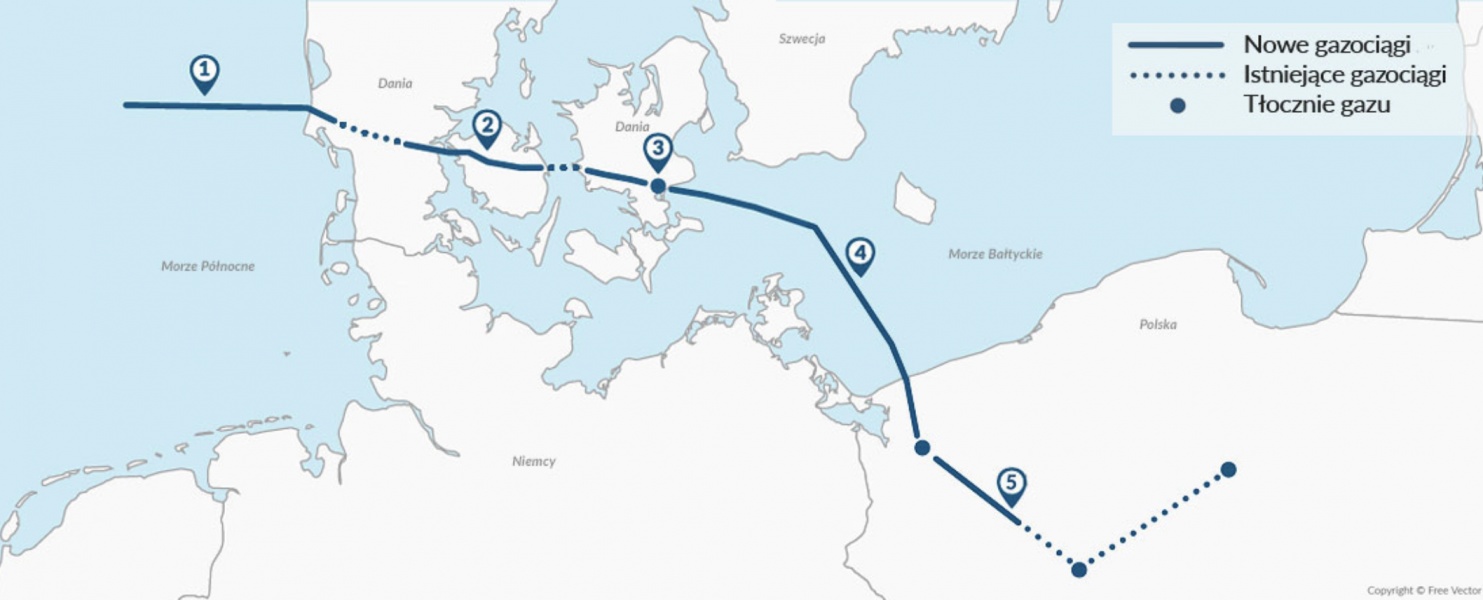
On 9 January 2020, GAZ-SYSTEM signed a contract with EUROPIPE GmbH for the supply of pipes for the offshore part of the Baltic Pipe, which will be laid on the bottom of the Baltic Sea. The Company also accepted the design documentation for this gas pipeline. These are other important milestones in the timely completion of the investment by the company.
– GAZ-SYSTEM is a guarantor of our national energy security in the area of natural gas. The implementation of the Baltic Pipe will enable the import of increased quantities of up to 10 billion m3 of gas from deposits on the Norwegian Continental Shelf to Poland from October 2022. It is important not only for Poland but also for the whole European Union, as it creates opportunities for a competitive gas market in this part of Europe. The contract signed today by GAZ-SYSTEM for the supply of pipes for the construction of the offshore gas pipeline is an important element of this process – said Piotr Naimski, Government Plenipotentiary for Strategic Energy Infrastructure.
– The activities required to commence the installation of the offshore section of the Baltic Pipe have almost been completed. We have contracted the supply of the most important materials and are selecting construction and installation contractors – said Tomasz Stępień, President of GAZ-SYSTEM. – Obtaining the decision to build the gas pipeline is also at an advanced stage. GAZ-SYSTEM has already received a set of permits in Denmark, and in Sweden and Poland, this stage of the investment is almost completed. As announced, we will start construction of the section connecting Poland and Denmark this year – Stępień concluded.
As part of the contract signed, EUROPIPE GmbH will deliver pipes with a nominal diameter of 900 mm, which will be made in sections with a nominal length of 12.2 m. The contract also covers pipes of the same diameter for the short onshore section of the gas pipeline to the receiving terminal. It will also cover all the protective coatings included in the project, which will both protect the pipeline and minimise its impact on the surroundings and the environment.
The steel wall thickness of the gas pipeline will range from 20.6 mm to 23.8 mm. The pipeline will also be covered with a special 4.2 mm thick anti-corrosion coating that will protect it during operation on the seabed. The pipeline will also be protected by a 60-110 mm thick layer of concrete. The contract also covers temporary storage of the manufactured pipes and their transport to the site of acceptance by the construction and installation contractor.
GAZ-SYSTEM has also accepted the detailed design that specifies the method of laying the pipeline on the seabed and the section connecting the offshore pipeline with the valve station. It also contains, among other things, reports on the analyses carried out concerning the protection of the pipeline and its stability on the Baltic Sea bottom.
The detained design is also based on:
- Results of a comprehensive annual environmental survey campaign covering the entire gas pipeline route. They were also used to develop the environmental impact report;
- Results of a detailed seabed survey for the corridor in which the offshore pipeline will be laid.
- Results of the quantitative risk analysis and risk analyses for the construction and operational phases to ensure the required level of safety of the offshore pipeline during construction and operation.
Such a comprehensive design ensures meeting the safety requirements of the offshore gas pipeline and starting pre-lay works.
***
EU Funding
In January 2019, the European Commission granted the Baltic Pipe project funding under the Connecting Europe Facility (CEF) for construction work to a maximum of nearly 215 million euro. In 2017 and 2018, support was provided for the implementation of project work to a maximum of approximately 51.45 million euro. In turn, as part of the competition in 2015, the investment received up to EUR 400,000 to develop the feasibility study. The total amount of EU support for the Baltic Pipe has been up to 266.8 million euro to date


